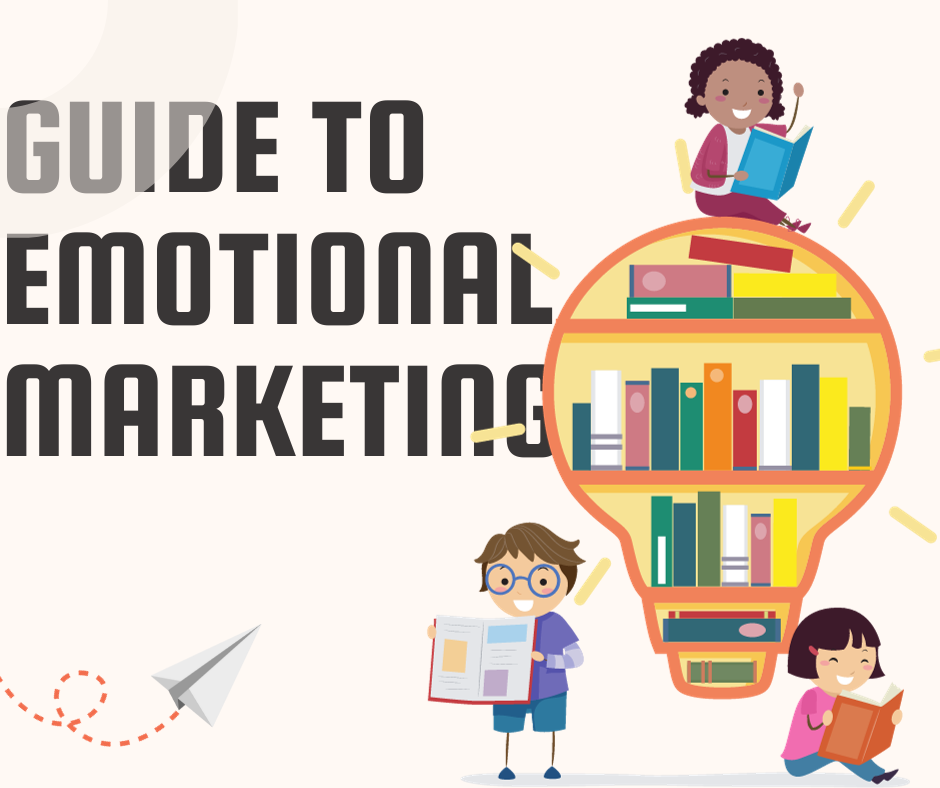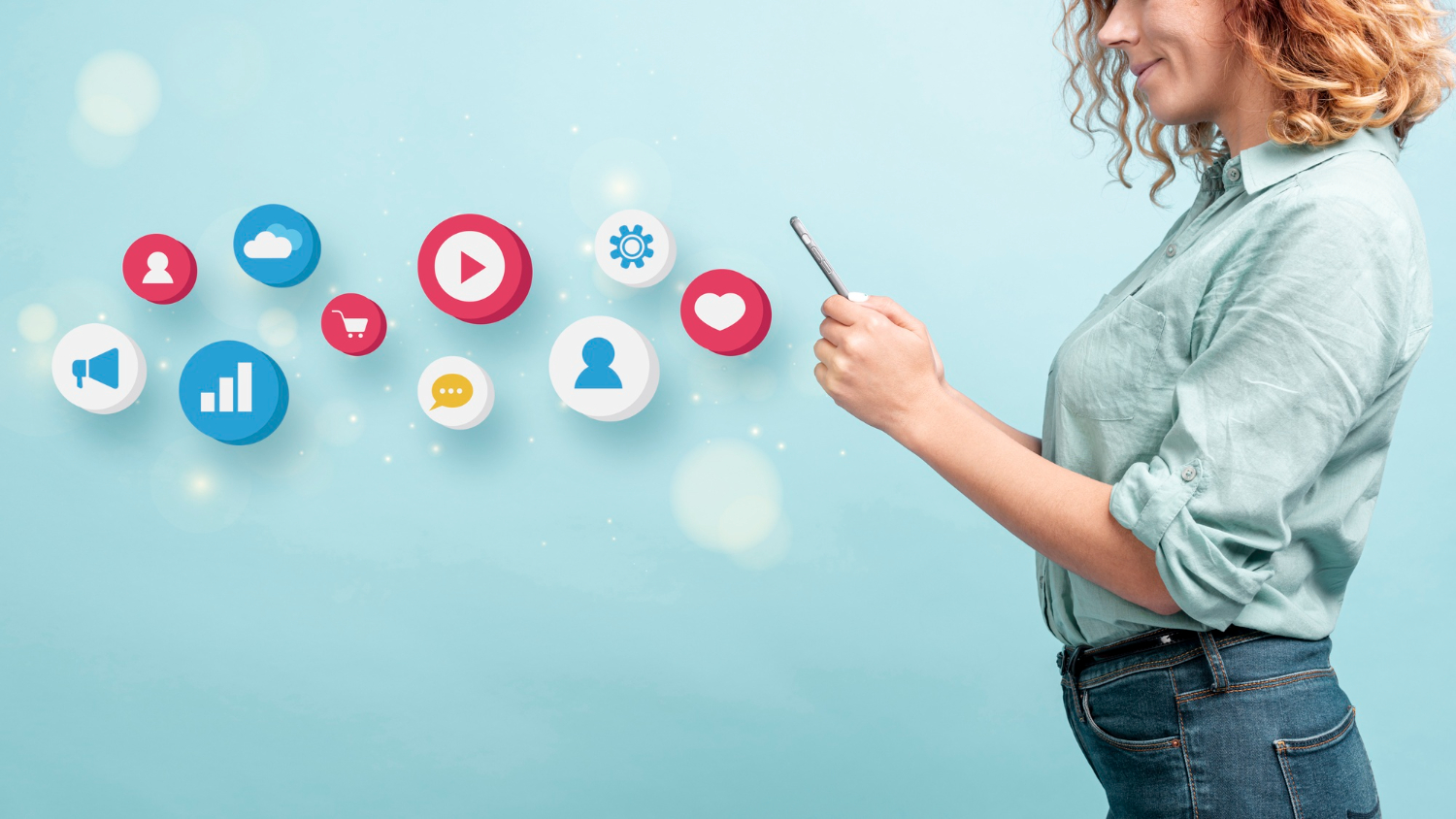What is Emotional Marketing and Why is It so Effective?
What is emotional marketing?
Psychological advertising and marketing is any kind of campaign or item of marketing collateral that mainly makes use of emotion to drive action. Commonly, marketing professionals will make use of a solitary emotion (worry, wonder, humor, temper, and so on) to make an emotional link with their audience. Psychological marketing can be made use of in TV ads, material marketing projects and can even be utilised in social media sites ads.
What makes psychological advertising so impactful? The factor is that when you establish a psychological bond with your target audience, it ends up being effortless to lead them towards a specific objective.
By developing a connection, even if it is momentary and short lived, you have the ability to grow a psychological attachment with your target market, which raises their receptiveness to concepts and recommendations. This link cultivates a level of dependence that can not be reproduced synthetically.
Rob Pedestrian and Joshua Glen discovered firsthand what a psychological link can do. In one experiment, they purchased numerous economical items from thrift stores and other shops.
.
The duo looked to identify whether they could leverage the emotional appeal of narration to develop a deeper connection with prospective clients and eventually drive sales.
With the help of 200 writers, they created fictional stories concerning the items and utilised those tales to sell the thrift shop things at public auction on eBay.
They increased simply under $8,000, an earnings of around 2,700%. And they did it all utilising psychological connection constructed with narration.
How Emotional Marketing Works
How Emotional Marketing Works Emotional marketing works because it bypasses our evolved rational brain and cuts straight through to our mammalian, emotional brain. If you aren’t familiar with the theory of dual processing, it holds that the brain processes thoughts and decisions on two levels.
The first degree is psychological. It processes info and decisions automatically, and automatically, and offers rapid responses with virtually no initiative. The second level is much more intentional. It’s our aware mind, where we assume choices through reason and logic. This process happens far slower than the emotional feedback. Psychological advertising and marketing jobs due to the fact that, in many cases, our brains fire back a psychological action, and after that we attempt to rationalise it purposely. You can examine your emotional feedback on your own by considering 2 large brand names. For instance, how do you feel when you look at these two vehicle brands?
Here’s another example that divides people:
And then there’s this famous consumer gadget rivalry:
In every circumstance, you likely have an immediate response concerning the brand you prefer. Nevertheless, this action is not based on logic. It is usually connected to your feelings or past experiences, such as just how satisfied you really feel utilising their items or the perceptions the brand names have left on you after an experience or reading a newspaper article. The mind after that tries to validate this emotional reaction. Psychological advertising and marketing confirms efficiency as it relies on your psychological reaction instead of your rational one, and the results can be impactful.
Emotional advertising and marketing is memorable. An advert or advertising and marketing project that creates a psychological connection is much more remarkable than a stale, fact-based project. You possibly can not keep in mind a lot of the advertisements you enjoyed on TV last night, as an example, yet I wager you can bear in mind a couple of Xmas adverts from your childhood years. That’s due to the fact that those adverts made use of marvel and pleasure to create an unforgettable connection.
Loyalty is cultivated via psychological advertising and marketing. Similar to tje brand picture discussed previously, a psychological advertising and marketing strategy can develop a strong bond with a brand name, leading consumers to like it over competitors. The supremacy of Apple’s laptop computers contrasted to Microsoft’s is not only based upon technological facets, but instead on Apple’s capability to deeply reverberate with our feelings and goals. According to research carried out by the Temkin Team, when customers have a favourable emotional connection with a brand name, they are substantially a lot more inclined to count on, buy from, and forgive that brand, in ratios of 8.4, 7.1, and 6.6 times specifically.
Psychological advertising has the power to encourage customers and drive conversions. By taking advantage of positive emotions, companies can encourage consumers to act and purchase. When contrasting similar items, consumers are more likely to pick the one that resonates with them to an emotional degree, even if the functions, styles, and costs are equal.
The profit-boosting capacity of psychological marketing is well-documented, with almost a 3rd of marketing professionals vouching for substantial monetary gains when leveraging emotional appeals. However, this success rate takes a hit when reasoning gets in the picture, as the number of effective projects reduces.
It’s no surprise, then, that nearly a third of marketers report significant profit gains when running emotional campaigns. But the number of successful campaigns dips if you introduce logic into the marketing.
And those results get sliced in half when marketers switch to logic over emotion.
A further study of 100 ads across 25 brands by Nielsen found ads with the best emotional response resulted in a 23% increase in sales.
Which Emotions Attract the Most Marketing Engagement in Content?
Some emotions impact our purchase decision more than others.
A 2017 study by Buzzumo and marketer Noah Kagan analysed the top 10,000 most-shared articles on the web. Those articles were then mapped to emotions to see which had the greatest influence on content.
The most popular were:
Awe (25%)
Laughter (17%)
Amusement (15%)
Some of the least popular emotions were sadness (1%), surprise (2%), and anger (6%).
Emotional Marketing Works in the B2B Process
Don’t get caught up with the dated idea that emotion is only applicable to consumer-focused businesses.
Emotional marketing has its place in the B2B marketing world as well. You may be dealing with a longer buying process between one or more organisations, but the decisions are still made (and fueled by) people who are absolutely driven by emotion.
That includes emotions like:
1.Awe: over what a solution is capable of and feeling empowered to bring that solution to the workplace.
2.Anticipation: in finding a piece of the puzzle in a product or service that will help the company achieve its next goal or milestone.
3.Fear: in purchase decisions that could reflect on the individual, resulting in a personal risk associated with a B2B purchase.
4.Joy: in knowing that a B2B purchase is likely to lead to a positive outcome that will reflect positively on the individual.
Emotion absolutely influences B2B purchases, and in some cases, emotion matters even more than logic and reason.
Conclusion:
In the ever-evolving landscape of marketing,
Emotional buying remains an art and science that influences consumer decisions like never before. The power of emotions in marketing is undeniable, and it continues to shape the strategies of successful brands worldwide. By understanding the psychology of emotional buying, leveraging the right emotions, and effectively implementing emotional marketing strategies, businesses can create lasting connections with their customers.
As we navigate the challenges and risks associated with emotional marketing, we’re reminded that the customer’s perception is the ultimate reality. Striking the right balance, avoiding insensitivity, and consistently measuring the impact are crucial steps for long-term success.
In a data-driven world, the ability to harness emotions for brand loyalty and growth is a competitive advantage. Emotional marketing isn’t just about what you sell but how you make your customers feel. It’s about creating experiences that resonate on a personal level, leaving a lasting impression and cultivating a loyal customer base.
In the end, it’s not only about buying a product; it’s about buying into a story, an emotion, and a connection. The art of emotional buying is a testament to the enduring power of human emotions in the digital age. Embrace it, and you’ll find that the heart of your brand is where the true magic happens.



